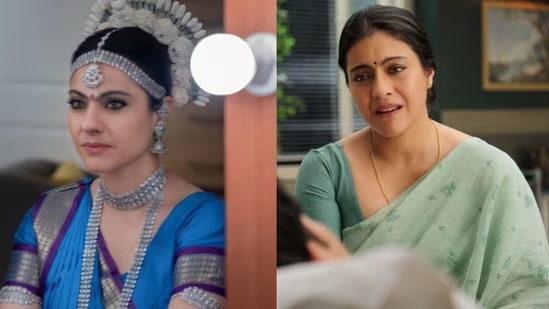Today, as we celebrate the birthday of one of Bollywood’s most cherished actresses, Kajol Devgan, it feels fitting to reflect on her dynamic and evolving career in the Indian film industry. Since her debut in the early 1990s, Kajol has been a beacon of talent, grace, and versatility, captivating audiences not just with her performances but also with her willingness to challenge conventions. From iconic romantic pairings to complex, multi-dimensional characters, her filmography is a testament to her growth as an artist. As she turns another year older, let’s take a journey through her increasingly experimental roles, highlighting the films that have carved her unique niche in cinema. Kajol’s early career was characterized by her striking presence and undeniable charisma, which quickly established her as a leading actress in the Hindi film industry. Films like Baazigar (1993) and Dilwale Dulhania Le Jayenge (1995) cemented her status as a romantic heroine, starring alongside some of the biggest names in Bollywood, particularly Shah Rukh Khan. These films not only showcased her acting prowess but also her ability to resonate with audiences through stories of love, sacrifice, and familial bonds. However, while she was celebrated for these roles, Kajol was always more than a ‘box office draw.’ Her innate talent allowed her to explore the emotional depths of her characters, presenting a nuanced perspective on interpersonal relationships. This duality of being a mass appeal actor while intricately portraying complex characters laid the groundwork for her varied filmography. By the late 1990s, Kajol’s film choices began to reflect a subtle shift in her artistic approach. While she continued to star in blockbusters, she started to take on more challenging roles that showcased her range. In films like Karan Arjun (1995) and Kuch Kuch Hota Hai (1998), she balanced the demands of commercial cinema with deeper emotional arcs. Notably, her portrayal of Tina in Kuch Kuch Hota Hai introduced audiences to a woman grappling with love and loss, a theme that would reappear in her later projects. Yet, even in mainstream cinema, Kajol’s performances often bordered on the unconventional. She presented strong, feisty characters who reflected the changing landscape of the Indian woman, moving away from the submissive tropes often seen in earlier films. This relationship with her characters would become more pronounced in her later work. The early 2000s saw Kajol take a break from acting as she embraced motherhood. However, her return to cinema was marked by a reinvigorated approach. The film My Name is Khan (2010) saw her pair again with Shah Rukh Khan, but this time, the narrative was laden with significant social commentary about identity and discrimination. Her character, Momina, was strong and resilient, transcending the traditional boundaries of her previous roles and allowing Kajol to delve into a story that examined deeper societal issues.
Happy Birthday Kajol! From Devi to Salaam Venky: A Look at the Birthday Girl’s Increasingly Experimental Filmography

